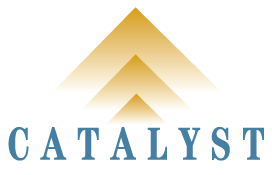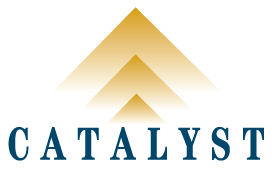-
Budgeting Complex Legal Work
- February 1, 2020
- Category: Managing Total Legal Spend
- Publication: Lexpert, February 2016 at pg 66
Our survey of 50 matter budgets from 20 law firms revealed that 80 % of the firms did not have standards and templates for budgeting complex matters in several specialties. Detailed matter budgets set out the hours for individual timekeepers by phase and task. They also set out the planning assumptions as well as a probability, expressed as a percentage, for each assumption. Law departments should master legal project planning and budgeting.
-
The [8] Critical Elements for Successful Non-Hourly Pricing
- January 26, 2020
- Category: Managing Total Legal Spend
- Publication: Buying Legal Council, Buying Legal Brief, 2nd instalment
The 8 critical elements for non-hourly pricing are: solid historical data about law firm staffing ratios and geographic distributions for each legal specialty; a 3 to 5-year forecast of the demand for legal services; a clear strategy on the best way to source and retain external counsel; a carefully designed RFP covering qualitative and financial elements; pricing, including non-hourly pricing, building on blended rates to achieve optimal staffing; a first round of pricing negotiations designed to customize initial pricing; a second round of negotiations to finalize pricing and operating protocols; and a master agreement with law firms covering service delivery, pricing and innovation.
-
Why a Productivity Improvement Fee Arrangement
- November 6, 2019
- Category: Managing Total Legal Spend
- Publication: Canadian Lawyer In-House websitae, November 2019 and Legal Business World, Issue 9 (2019)
Law departments must be the ones to initiate the replacement of hourly-based fees with alternative fee arrangements (AFAs). Some AFA designs target cost certainty while others lean toward improving efficiency. The article offers two scenarios that are compared with traditional hourly fees. The Productivity Improvement AFA shares risk and reward with law firms while targeting a 10% reduction in total legal spend.
-
Managing the Legal Supply Chain
- October 12, 2019
- Category: Managing Total Legal Spend
- Publication: Legal Business World, Issue 1 (2020) Canadian Lawyer In-House website
There are 5 impediments to modernizing the corporate law department’s relationship with law firms. These are a lack of clear, written strategy by the CLO, setting out preferred relationship with firms; not enough proficiency in influencing the causes and sources of work coming into the law department; deficiencies in the organization, resources and operating practices of law department; poor mastery of alternative fee arrangements, applied to complex work; and no detailed plan to make overcoming these barriers a priority.
-
Thoughts on Pricing Legal Services
- May 13, 2019
- Category: Positioning and Strategy, Workflows and Workloads, Organization and Resources, Performance Management, Managing Total Legal Spend, Benchmarking and Surveys
- Publication: Legal Business World, Issue 5 (2019) Canadian Lawyer In-House, 13 May 2019
The Association of Corporate Counsel (ACC) released a comprehensive report benchmarking 15 legal operations. The law department maturity model uses three stages to survey the External Resources Management function. Only 11 % of the 316 participants reported they were in an advanced stage for this function. Few law departments made significant use of alternative fee arrangements or of metrics applied to pricing. The article discusses the need for pricing expertise, four questions to include in RFPs for legal services and how to approach alternative fee arrangements.
-
Beyond the Basics
- March 12, 2019
- Category: Managing Total Legal Spend
- Publication: Canadian Lawyer In-House, posted on the website on March 10th, 2019 and Legal Business World, Issue 3 (2019) on page 34
The article is a commentary on Quovant’s white paper “Legal Spend and Matter Management”. Four basic ideas are put forward: timekeeper authorizations, billing guidelines, alternative fee arrangements, and objective and subjective reviews of invoices. Catalyst Consulting suggests additional and more robust measures that step away from hourly rates for individual timekeepers; rely on the introduction of formal Records of Instructions; detailed legal project plans and budgets for individual matters; and fee arrangements that provide incentives to law firms for productivity, performance and innovation.
-
7 Critical Steps for a New Deal
- March 2, 2019
- Category: Managing Total Legal Spend
- Publication: Legal Business World Issue 2 (2019), at page 34
Successfully reducing legal spend in 2019 cannot take the form of a race to the bottom of the barrel for lower hourly rates. Seven critical steps are described: Secure 2 years’ worth of detailed data from law firms; prepare a multi-year forecast of requirements for external counsel; innovate in configuring primary and other firms by region with longer-term commitments; ensure Legal and Procurement professionals are proficient in non-hourly arrangements; apply optimal staffing patterns to individual matters; evaluate firms every 6 months against 4 KPIs; and have the CLO sign-off on a written project plan to implement the 6 previous steps.
-
Fixed Fees and Performance
- September 1, 2018
- Category: Managing Total Legal Spend
- Publication: Legal Business World, post December 2018; Legal Business World, Issue 9 (2018); and Lexpert, Vol. 18, No. 4, March 2017
Corporate clients should systematically request detailed matter budgets with the planning assumptions and hours by phase and task for each fee earner when the file is likely to exceed 50 hours. This is good, basic practice management.
The article suggests that putting more eggs in fewer legal baskets and making long term commitments of work to law firms makes it possible to introduce fixed fees for portfolios of work. It also removes barriers to introducing key performance indicators and to truly innovating in legal service delivery.
-
Four Questions for Legal Sourcing
- July 31, 2018
- Category: Managing Total Legal Spend
- Publication: Legal Business World, Issues 5 (2018) and Lexpert, Vol. 19, No. 7, July-August 2018
A survey of 153 legal sourcing professionals by the Buying Legal Council leads to four questions. How do the savings get measured? To what extent is the entire portfolio of legal work scoped and then sourced on a non-hourly basis? Is the company able to evaluate law firm practice patterns as a way to select the best AFA? To what extent is complex, strategic work subject to the legal sourcing process?
-
Too Little, Too Late?
- May 1, 2018
- Category: Managing Total Legal Spend
- Publication: Lexpert, Vol 19, No. 5
Most law departments do not possess the information or analyze the data that they have to leverage law firm capabilities. The result is a default to retail hourly pricing and the usual discounts for volume.
Too few firms have robust templates for matter plans and budgets. Planning assumptions and a percentage certainty by phase and task are the exception.
When asked, law firms always meet the challenge to produce data about practice patterns, to generate robust matter plans and budgets, and to accelerate the introduction of alternative fee arrangements.
Articles on Demand – Archive

